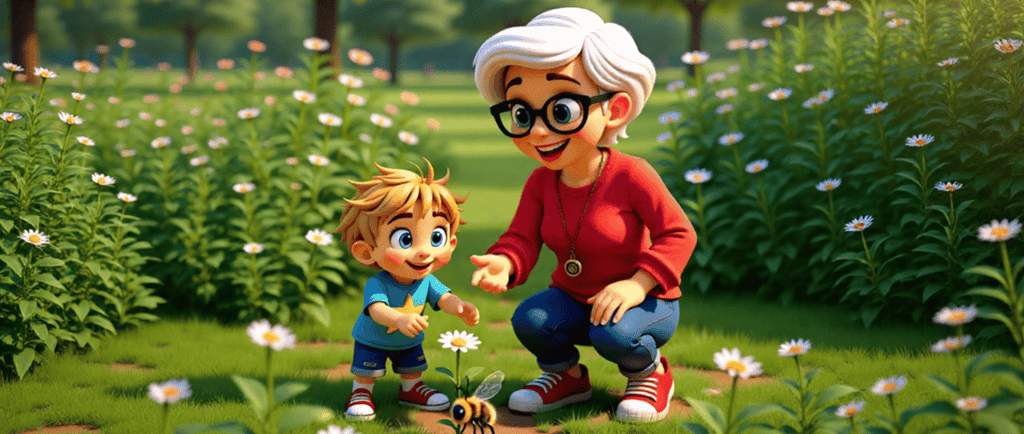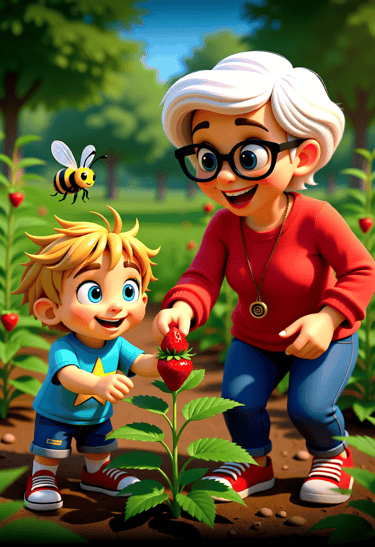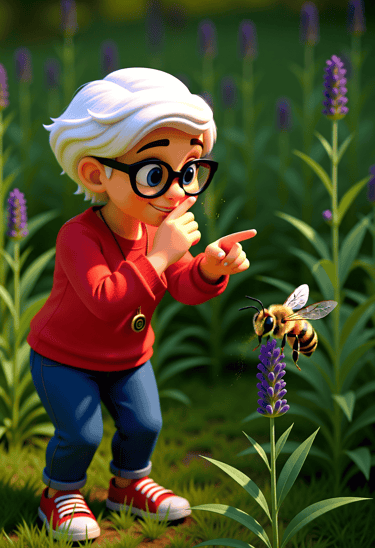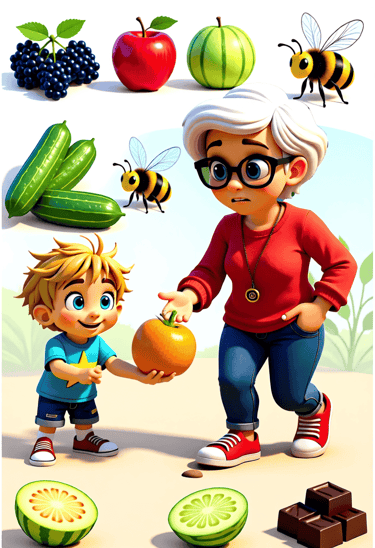Why Bees Matter: A Sweet and Simple Lesson From Nanny’s Garden
Discover a child-friendly lesson about why bees matter, inspired by Nanny’s garden. Perfect for parents, teachers, and caregivers helping young children (ages 4–8) learn about nature, kindness, and protecting our planet.
N. Ribbet
11/24/20252 min read


Why Bees Matter: A Lesson From Nanny’s Garden
Every Saturday morning, Nanny liked to take her grandson, Alvey, out to her garden. It wasn’t the biggest garden in the village, but to Alvey, it felt like a magical world. It felt alive with color, buzzing sounds, and tiny wonders waiting to be discovered.
“Every creature here has a job,” Nanny always said. “Even the ones you think are scary.”
One warm spring morning, while they were busy picking strawberries, a small buzzing sound zipped past their ears.
“A BEE!” shouted Alvey, hiding behind Nanny's legs.
Nanny knelt. “Ah, yes. One of my little helpers.”
“Helpers?” the child echoed, confused.
Nanny smiled. “Let me show you something.”
She guided Alvey to a patch of bright purple lavender. Bees hovered gently above each flower, dipping in and out like tiny visitors at a breakfast buffet.
“You see,” Nanny whispered, “bees collect nectar to make honey. But while they’re doing that, they carry little bits of yellow dust called pollen from flower to flower. That helps the flowers grow seeds—and that means more plants, more fruit, and more food for everyone.”
The young boy watched the bees with wide eyes. The bees moved slowly and calmly, completely uninterested in bothering anyone.
“So… they’re like gardeners?” Alvey asked.
“Exactly!” Nanny laughed. “Tiny gardeners in fuzzy jackets.”
They spent the next hour discovering all the places bees had visited. Apple blossoms, tomato plants, and sunflowers stand tall like golden soldiers. Everywhere they looked, they saw how much life depended on those little buzzing workers.
“But what if all the bees went away?” Alvey asked quietly.
Nanny’s smile became softer. “Then the world would lose many of the foods we love. That includes berries, apples, cucumbers, and melons. Even chocolate grows from a plant that needs pollinators. Without bees, gardens like mine wouldn’t have the same colors, smells, or tastes. That’s why we must take care of them.”
“What can we do?” the child asked.
“Three simple things,” she said.
1. Be Kind to Bees
If a bee flies near you, stay calm and still. Bees aren’t interested in hurting people because they’re too busy working!
2. Plant Bee-Friendly Flowers
You don’t need a big garden. Even a pot with lavender, sunflowers, or daisies can help a bee find a meal.
3. Don’t Pick Every Flower
Some flowers are food for bees. Leave plenty behind so they can do their important job.
By the time they went inside for a snack, Alvey wasn't afraid anymore. He pressed his nose to the window, watching the bees buzz around like tiny superheroes.
Nanny winked. “See? The garden works because everyone plays their part, even the smallest of helpers.”
And ever since that day, whenever the child saw a bee, he didn’t scream or run. Instead, he whispered, “Thank you, little gardener.”






Inspire
Books that nurture kindness and self-growth.
Educate
Entertain
+1234567890
© 2025. All rights reserved.
